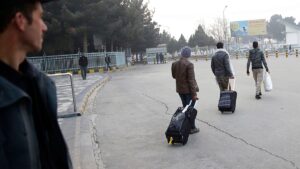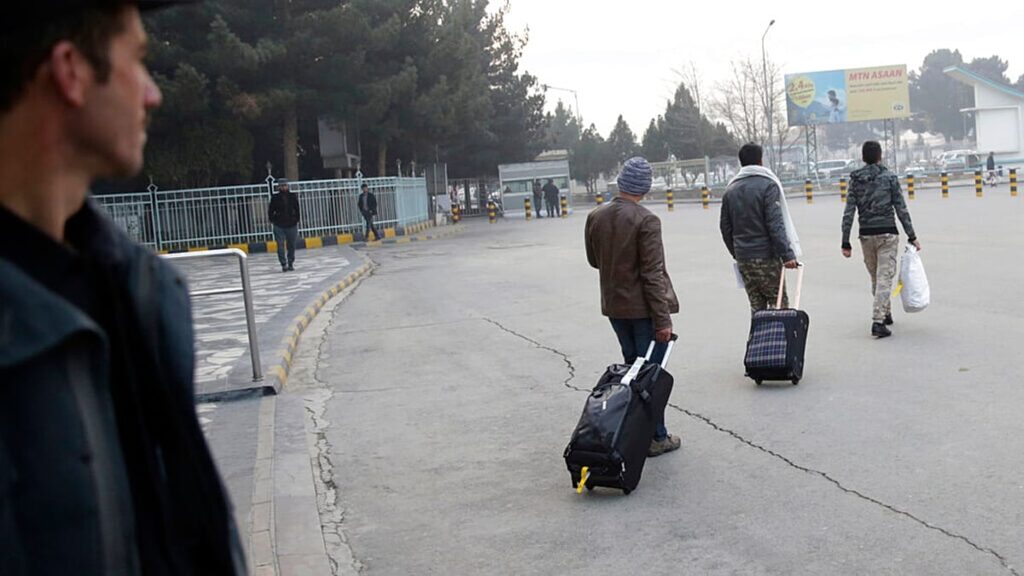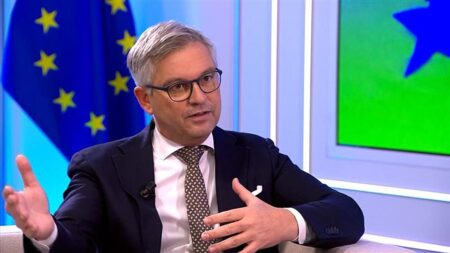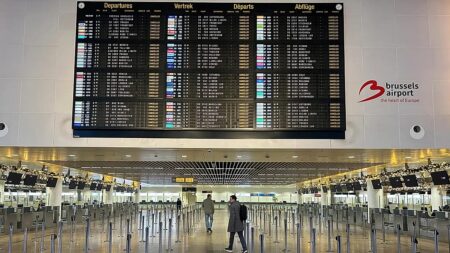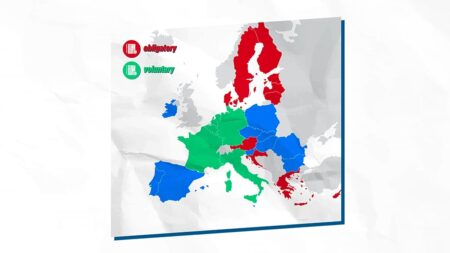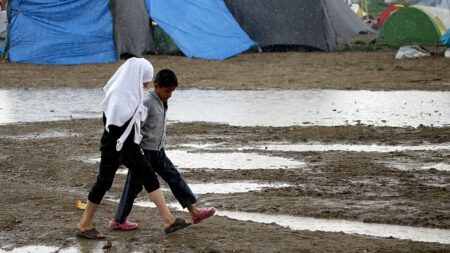The European Union must talk with governing authorities such as the Taliban on technical matters related to migration, the European Commissioner in charge of Migration, Magnus Brunner, said on Euronews’ flagship interview programme, The Europe Conversation.
“Getting engaged with third countries, even though we don’t like their governments and the way they’re doing things, is still important,” Brunner said when asked about Germany negotiating a deal with the Taliban to send back Afghan nationals set for deportation.
“It’s not fun, it’s not easy, but not being engaged is not an option. So on a technical level, I totally understand it, and we support that as the Commission as well.” Meetings on a technical level only include civil servants; political figures do not attend.
Brunner noted that, in the case of migrants hailing from Afghanistan, the EU has seen examples involving “criminals and people posing a security threat to member states”.
“I think it’s legitimate to send them back and to find solutions with these regions or countries to find solutions to get these people back to their country of origin.”
Legitimising Taliban?
Germany’s Interior Minister Alexander Dobrindt announced earlier this year that his government wants to negotiate a direct agreement with the Taliban to speed up the repatriation of Afghan nationals. This mainly applies to those whose applications have been rejected or who have been convicted of serious crimes in Germany.
The deal is expected to be finalised in the coming weeks.
The move drew criticism from coalition partners, as the Taliban’s rule has been marked by systematic violations of human and especially women’s rights since it returned to power in Afghanistan in August 2021.
Critics have also warned that a major EU country maintaining a dialogue with the Taliban provides the Afghan regime with legitimacy, paving the way to a gradual normalisation of its relationship with Western countries.
However, Berlin has stressed it maintains no official diplomatic relations with the Taliban.
“We must differentiate between [talking with the Taliban] and acknowledging that there is a government or respecting the government, which we don’t do,” Brunner noted.
The EU also started exploratory talks with the Taliban without formally recognising it.
The admission came in October this year after 20 European countries came together to pressure the Commission to find ways to send back Afghan nationals who are living illegally in Europe.
They lamented the lack of a formal return agreement with Afghanistan to do so, arguing that, particularly related to those convicted of crimes, this situation poses a threat to EU security.
No capacity to absorb returnees
As EU member states seek ways to repatriate Afghan nationals, a senior UN official told Euronews that Afghanistan does not have the capacity to absorb refugees who have already returned home.
“There is a disconnect between global calls for people to return to Afghanistan and the ability of Afghan communities to absorb those coming back,” UNDP director for Asia and the Pacific, Kanni Wignaraja, said.
A UN Development Programme (UNDP) report noted that the country’s severe conditions, including a lack of access to international assistance, are making it challenging to reintegrate Afghans coming home. It cited the Taliban’s severe impositions on basic human rights, particularly affecting women and girls, as key factors.
Some experts believe, meanwhile, that the growing sense of rapprochement with the Taliban could help improve the human rights situation in Afghanistan.
Watch the full interview on The Europe Conversation, Thursday 27 October at 21.30 CEST.
Read the full article here




